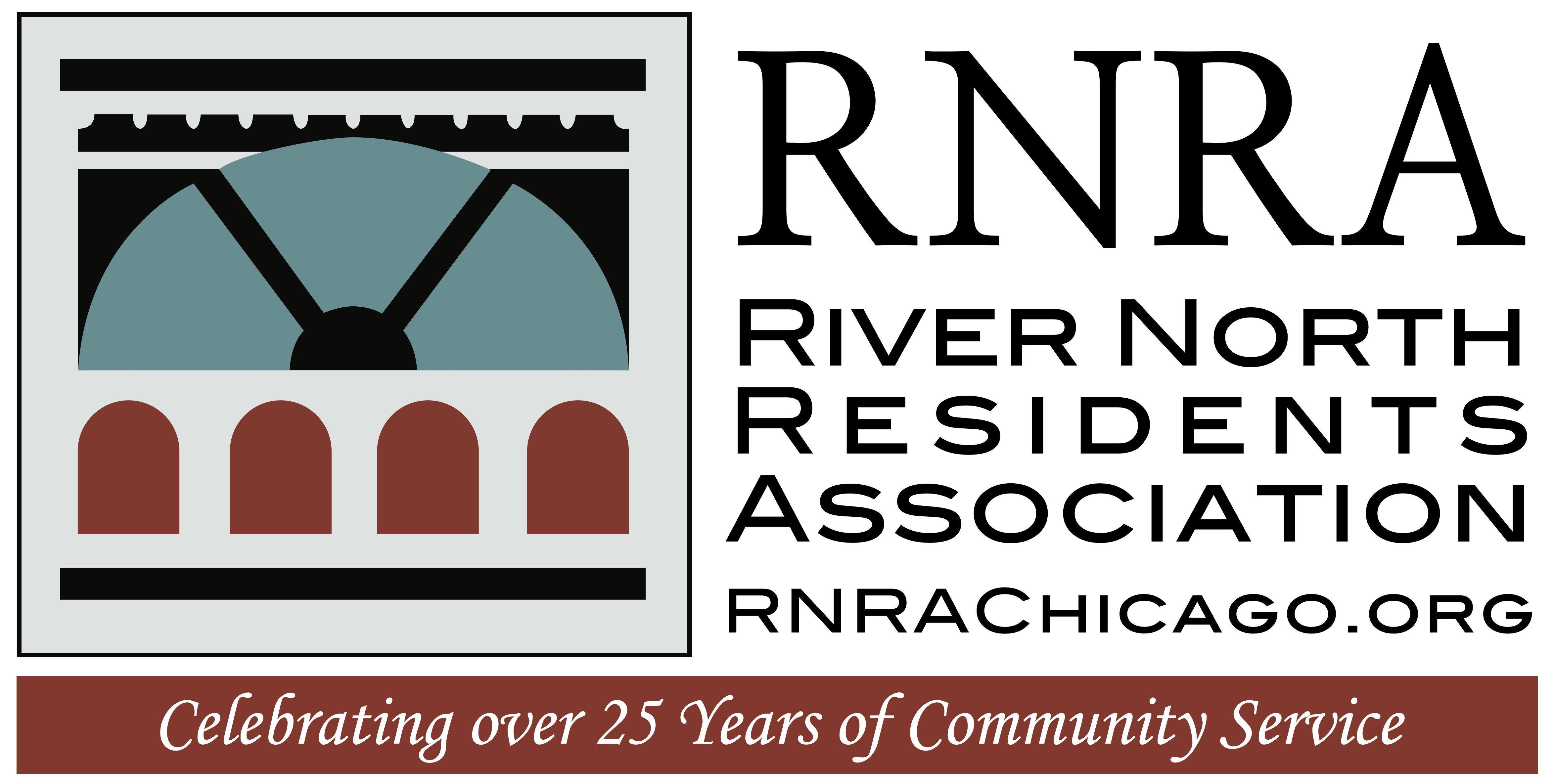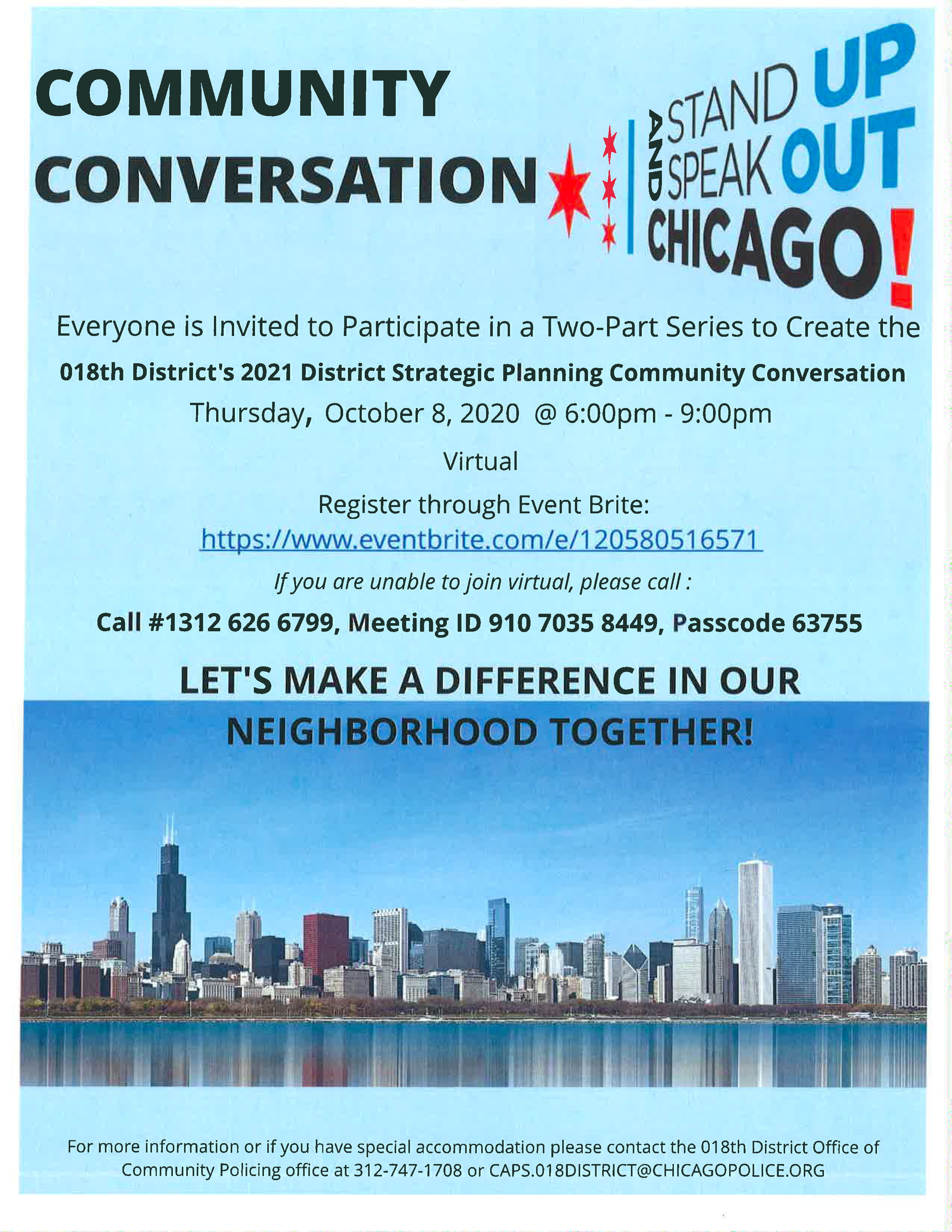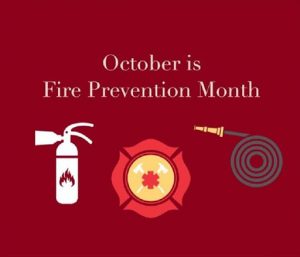 October is National Fire Prevention Month. This year’s theme, as chosen by the National Fire Prevention Association, is “Serve Up Fire Safety in the Kitchen.” Cooking is the #1 cause of home fires and home fire injuries, and unattended cooking is the leading cause of fires in the kitchen. Help keep your home safe by changing the batteries in your smoke detector this month, and using the helpful tips for both adults and children found on the NFPA’s website.
October is National Fire Prevention Month. This year’s theme, as chosen by the National Fire Prevention Association, is “Serve Up Fire Safety in the Kitchen.” Cooking is the #1 cause of home fires and home fire injuries, and unattended cooking is the leading cause of fires in the kitchen. Help keep your home safe by changing the batteries in your smoke detector this month, and using the helpful tips for both adults and children found on the NFPA’s website.
National Fire Prevention Month – Change Your Smoke Detector’s Batteries
Support Gilda’s Club Chicago by joining GILDA’S VIRTUAL WALK & RUN
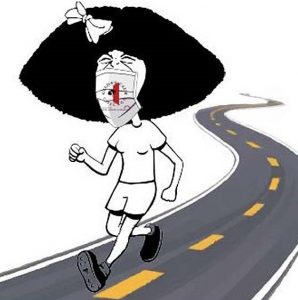
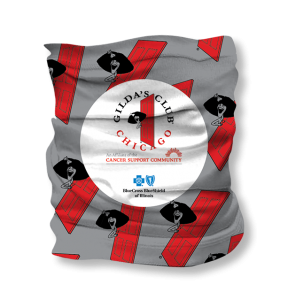
Alderman Reilly’s COVID-19 Update on September 28th, 2020
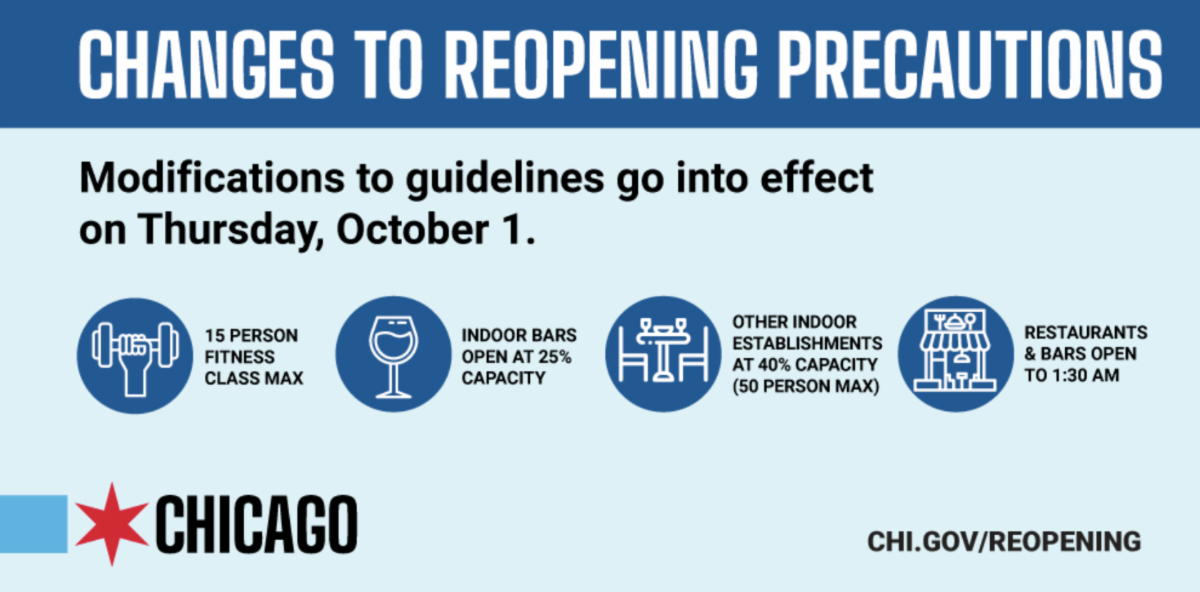
Modified Phase Four Reopening Guidelines Go Into Effect on Thursday, October 1
Our downtown and neighborhood businesses are central to what makes our city great. These modified reopening guidelines will be a lifeline for thousands of businesses, but we must continue to follow critical health and safety guidelines while we move towards a reopened economy that works for our businesses and workers.
I introduced an ordinance last month that would have extended hours of operation for bars and restaurants from 11:00 p.m. until 1:00 a.m., and would increase indoor capacity limits, allowing Chicago’s hospitality industry much-needed relief during this very challenging time.
The hospitality industry alone employs nearly 100,000 Chicagoans, and most of these businesses – whether downtown or in the neighborhoods – are teetering on the brink of bankruptcy and closure.
These modifications will benefit business owners and their employees across all 50 wards of Chicago: offering these neighborhood bars and restaurants two additional hours to flip an additional table service, and to allow the liquor sales needed to help establishments simply break even again.
Restaurant and bar operators have told me that ending liquor sales at 11 p.m. is not profitable – they are losing money. By simply adding just two hours of liquor service (until 1:00 a.m.), these operators could actually turn a modest profit. Giving this industry just 120 minutes of additional liquor service can be the difference between survival and bankruptcy.
I am pleased that the City has proactively modified these guidelines and my ordinance is no longer required. Due to our continued improvement on COVID-19 health metrics, Mayor Lightfoot and the Chicago Department of Public Health have announced that the following changes will become effective Thursday, October 1st, at 5:00 am:
While enough progress has been made to ease certain restrictions, Chicago remains in the midst of the COVID-19 pandemic and calls on all businesses and customers to continue following the phase four guidelines.
These changes build on Chicago’s status as one of the most open large cities in America and are possible due to continued improvement on crucial COVID health metrics, including a declining number of new daily cases, a test positivity rate now below 5% and the lowest rates of hospitalization and death in months.
Chicago is now seeing around 300 new COVID cases per day whereas in late August the city was over 350 cases per day and rising. Test positivity (the percentage of COVID tests with a positive result) has fallen to 4.5% and severe outcomes have also improved, with hospitalizations from COVID lower than they’ve been since March and deaths at an average of 2-3 per day, when they were around 50 per day at the peak of the pandemic.
In order to continue the significant progress, the following additional guidelines will also come into effect on Thursday, October 1st:
These new health and safety regulations are in addition to existing guidelines, including the requirement for diners to continue wearing face coverings when interacting with staff and for residential property managers to limit guest entry to five additional people for single-member households such that total indoor gatherings and parties do not exceed six people. BACP will continue enforcement of these guidelines.
To prepare all business owners for the new phase four guidelines and for the cold weather regulations, the City of Chicago will be hosting a series of webinars this week. To register and learn more, visit chicago.gov/businesseducation.
These restrictions, as part of Phase IV guidelines, are in effect until further notice. Continue checking the City of Chicago’s COVID-19 website for the most up-to-date information.
Sincerely
Brendan Reilly
President Pro Tempore
Alderman, 42nd Ward
CPD Launches Policy Surveys and Focus Groups Seeking Community Engagement
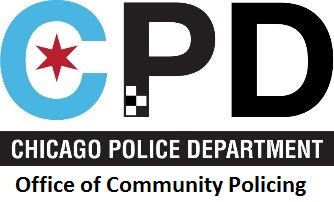
As part of the Department’s latest community engagement effort, the Chicago Police Department (CPD) has launched a series of public surveys on several impartial policing policies, and will begin conducting discussions with community members and individuals with lived experiences to gain feedback on ways to improve or develop policies later this month.
Members of the public have until Oct. 15, 2020 to complete online surveys on the following policy topics:
Part of the review process will involve the creation of community focus groups that will use a web-based communication platform to create a collaborative space for sharing feedback.
Those interested in attending a focus group for one of these specific policies are encouraged to complete the online form, available here. Participants for focus groups will be selected at random and efforts will be made to ensure they accurately reflect the full diversity of the communities and residents our officers are sworn to serve and protect. Individuals selected to attend a focus group will be directly contacted by CPD. The Department will work to accommodate as many requests as possible, but will not be able to offer everyone a spot on a focus group.
To continue establishing trust within the communities they serve, CPD will also periodically post policies for public review and comment. The comment period for most policies will remain open for 15 days from the day it is published. Select policies will have longer comment periods. When the comment period closes, CPD will then review and consider comments received from the public before finalizing the policy and placing the directive in effect.
Early Voting in Chicago: What You Need to Know
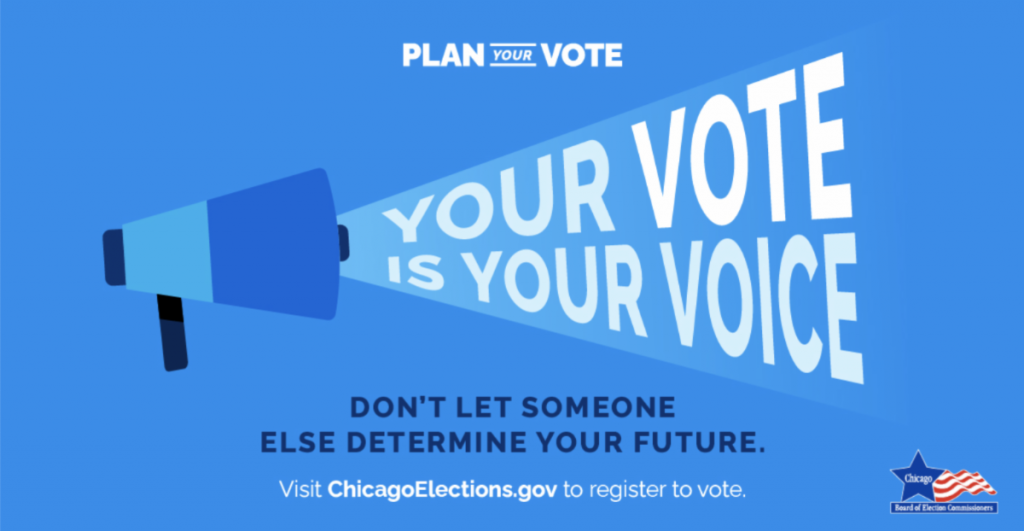 For the November 3 General Election, Chicago voters may use any Early Voting location in the city to cast their ballot. Starting October 1, voters can cast their ballots at the Loop Super Site and then on October 14 at any of the 50 Ward early voting sites.
For the November 3 General Election, Chicago voters may use any Early Voting location in the city to cast their ballot. Starting October 1, voters can cast their ballots at the Loop Super Site and then on October 14 at any of the 50 Ward early voting sites.
Every voter is encouraged to wear a face mask that covers the mouth and nose, whether visiting to use in-person Early Voting or to use a Secured Drop Box. Voters in line must practice social distancing with 6 feet (2 meters) of space between persons in line.
Any ballots that voters cast in Early Voting are final. After casting ballots in Early Voting, voters may not return to amend, change or undo a ballot for any reason. It is a felony to vote more than once — or to attempt to vote more than once — in the same election.
Government-issued photo ID is not required but is helpful if there is a question about the voter’s registration, address, signature or if there are two voters at the same address with the same names or similar names.
Registration services are available at every Early Voting site. Two forms of ID, one of which shows the voter’s current address, are needed to register for the first time or to file a name change or an address update.
Below is a list of the hours and locations of early voting sites in or near the 42nd Ward. For the full list of locations around the City, please click here.
October 1 – October 13
Loop Super Site (Clark & Lake – 191 N. Clark St.)
Maggie Daley Park (337 E. Randolph St.)
Ogden Elementary School (24 W. Walton St.)
Ballot mailings began September 24. No reason or excuse is needed to Vote By Mail.
The Board of Elections recommends voters request a Vote By Mail ballot no later than October 15 to make certain that they have enough time to receive and return the ballot on or before Election Day on November 3. The absolute deadline to apply is 5:00pm on October 29, but applying that late gives the voter very little time to receive and return the ballot by Election Day five days later.
You must use the Ballot Return Envelope with your name on it, which will be mailed with the ballot and voting instructions.
New this year, there will be secured Drop Boxes will be available at every Early Voting site for any Chicago Vote By Mail voter to submit the signed and sealed Ballot Return Envelope. Voters still have the option of using standard US Mail to return the Ballot Return Envelope.
Ballots can be dropped off at any of the locations listed above and there will be a 24 hour drop box located at 69 W. Washington St. The 24 hour location will remain open through Election Day at 7:00pm.
For answers to Frequently Asked Questions, please click here. For more information about voting this November, please visit the Chicago Board of Elections website.
City of Chicago Announces Start of Bridge Lifts Along the Chicago River
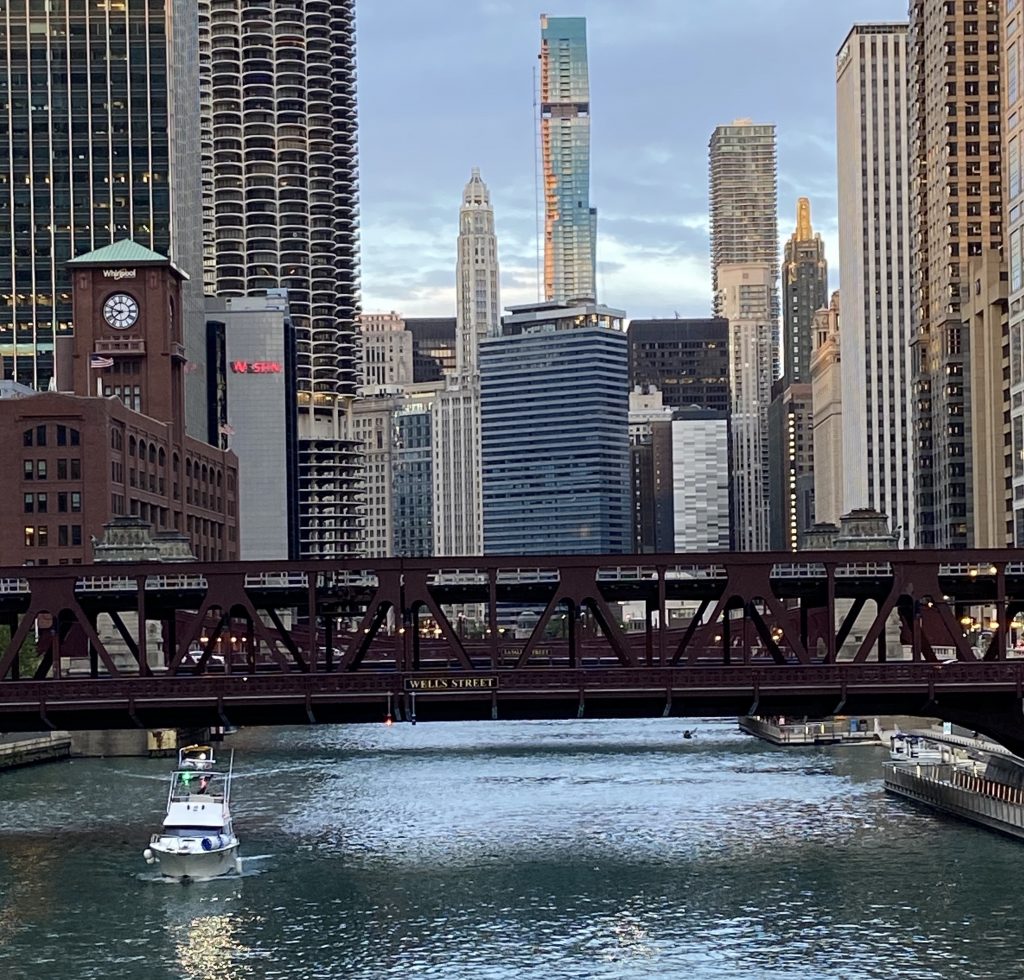 The City of Chicago began the autumn bridge lifts on Wednesday, September 22. Bridges along the main and south branches of the Chicago River will be lifted sequentially on a twice weekly schedule, Saturdays and Wednesdays, to allow sailboats and other recreational boats to make their annual trip from the open waters of Lake Michigan to their winter storage facilities. The Chicago Department of Transportation (CDOT) oversees these bridge lifts each year, in the spring and fall seasons.
The City of Chicago began the autumn bridge lifts on Wednesday, September 22. Bridges along the main and south branches of the Chicago River will be lifted sequentially on a twice weekly schedule, Saturdays and Wednesdays, to allow sailboats and other recreational boats to make their annual trip from the open waters of Lake Michigan to their winter storage facilities. The Chicago Department of Transportation (CDOT) oversees these bridge lifts each year, in the spring and fall seasons.
A total of 27 bridges will be lifted in succession from Lake Shore Drive to Ashland Avenue Bridge on the south branch of the Chicago River. In the event that no boat owners have made arrangements to move their boats on a scheduled day, the bridges will not be lifted.
During these “boat runs,” the bridges are typically raised one at a time, with each bridge lift taking an average of 8-12 minutes. While the bridge is in the upright position, traffic is halted, and drivers may use alternate streets or wait until the bridge is lowered. A list of affected streets, from Lake Shore Drive to the end of the South Branch is below.
Lake Shore Drive, Columbus Dr., Michigan Ave., Wabash Ave., State St., Dearborn St., Clark St., La Salle St., Wells St., Franklin St., Lake St., Randolph St., Washington St., Madison St., Monroe St., Adams St., Jackson Blvd., Van Buren St., Congress Pkwy., Harrison St., Roosevelt Rd., 18th St., Canal St., Cermak Ave., Halsted St., Loomis Ave., and Ashland Ave.
Due to ongoing work happening on Lake Shore Drive, the bridge lift may have longer than usual delays. CDOT is urging motorists planning to drive on Lake Shore Drive around 9:00 am on Saturdays and 9:30 am on Wednesdays to re-route in order to avoid delays, as the bridge closure could last 45 minutes or longer.
Fall 2020 Bridge Lift Schedule
- Saturday, Sept. 26 at 9 a.m.
- Wednesday, Sept. 30 at 9:30 a.m.
- Saturday Oct. 3 at 9 a.m.
- Wednesday, Oct. 7 at 9:30 a.m.
- Saturday, Oct. 10 at 9 a.m
- Wednesday, Oct.14 at 9:30 a.m.
- Saturday, Oct. 17 at 9 a.m.
- Wednesday, Oct. 21 at 9:30 a.m.
- Saturday, Oct. 24 at 9 a.m.
- Wednesday, Oct. 28 at 9:30 a.m.
- Saturday, Oct. 31 at 9 a.m.
-
Wednesday, Nov. 4 at 9:30 a.m.
- Saturday, Nov. 7 at 9 a.m.
-
Saturday, Nov. 14 at 9 a.m.
Census 2020 Deadline Extended through October

Information from the census shapes our communities and influences our city’s voice in Congress. The census tells us who we are as a nation and what we need. Data collection has been extended through October to ensure a complete count.
The data are used to determine what resources our communities need. Funds are provided to state and local governments who then use that money to fund crucial programs and infrastructure like healthcare, housing, education, and transportation.
An accurate census ensures equal political representation and fair allocation of government resources. Census data are used to determine how many seats each state gets in the House of Representatives, and to redraw the boundaries of congressional and state legislative districts. Census data are also used at the local level: the City of Chicago relies on population counts to make important decisions about local policies and funding.
Participation in the census is the right and responsibility of every Chicago resident. As of today, only 57.7% of 42nd Ward residents have completed the Census – well below the City’s target of 75% participation.
How Can You Help?
Please complete your Census and remind your neighbors – residents can complete the survey online, via telephone, or via mail.
Census enumerators are currently visiting residential buildings to contact residents who have not yet filled out the Census via the above methods. We kindly ask that property managers consider ways that your building can assist Census enumerators to complete their important work of an accurate count – whether it is by providing the enumerator with a list of vacant units, or allowing the enumerator access to a common area in the building to assist residents with completing their Census, or another method to put the enumerator in contact with residents who may need additional help completing the survey.
For additional ways to get involved, please click here. Remember, for every additional person counted in Chicago, we stand to gain approximately $1,400 that could be used towards parks, schools, and infrastructure!
Join RNRA for a Ward Park Clean-up on October 17th – PITCH IN FOR THE PARKS
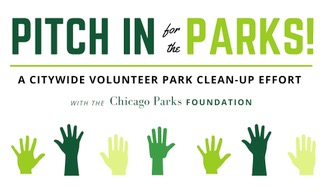
Volunteer to Pitch in for Ward Park!
This summer, the Chicago Parks Foundation, in partnership with the Chicago Park District and local communities, is leading a citywide volunteer initiative to help keep our parks clean.
Over the past few months, park budgets have been stretched and there are fewer seasonal employees. If we provide the volunteers, the Chicago Parks Foundation will provide clean-up supplies and safety guidelines to help support our park’s ongoing maintenance.
Join the RNRA in Ward Park on Saturday, October 17th from 9:00 am – 11:00 am and help us “Pitch in for the Parks.”
Protective gloves, trash bags and tools will be provided. Volunteers will work in groups of ten or less and physical distancing guidelines will be enforced. Face masks/coverings must be worn at all times. Children under 18 years of age must be accompanied by a responsible adult. Registration is required.
Can we count on you to “Pitch in for the Parks?”
Registration cannot be accepted until review of the Volunteer Safety Guidelines and completion of the Participant Release Waiver Form.
018th District 2021 Virtual District Strategic Planning Community Conversation – Everyone is invited
New 42nd Ward Development Proposal – 50 East Huron Street
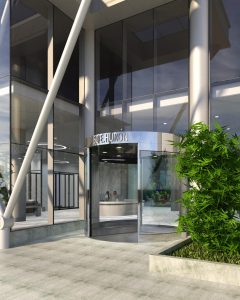
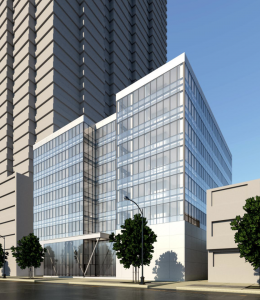
The Restorative Care Institute (“RCI”) plans to develop a Class A, post-acute rehabilitation center with advanced infection controls at 50 East Huron (previously occupied by the American Library Association “ALA”).
The existing ALA building is a vacant, five-story, brick structure fronting Huron Street. Surrounded by retail, hospitals, surgical centers and a large, residential high-rise population, the site is well-located to capture the demand of this programming, unique to Chicago.
The proposal involves deconstruction of the existing building: re-use of the structural steel, a three-story addition and re-cladding in glass and white steel with some exterior expression of the bracing.
Although doctors and nurses will be on-site, this is not a hospital. RCI is a class A, rehab and recovery center with advanced infection controls to protect post-surgical patients during recovery. The building’s environmental systems will include the highest infection prevention standards, unlike anything in Chicago: negative pressure rooms, HEPA filtration, ultraviolet germicidal particle elimination, voice-activated elevators, state-of-the-art safety systems and staffing protocols designed around healthcare related infection prevention throughout the entire interior.
Furthermore, patients arrive and depart via pedestrian vehicles, not in ambulances. The building will contain indoor parking located in the basement (below-grade) for staff and some visitor parking. All loading will occur off-street in the existing alley.
The project development team will be required to present their plans for approval to the Chicago Plan Commission, Committee on Zoning, Landmarks and Building Standards and City Council to gain approval for this proposed amendment to Residential Business Planned Development No. 173. The use and required FAR are already in place; the sole purpose of the amendment is to clarify the language in the use provision statement to include the words “skilled nursing” as “medical use” is already included. RCI hopes to open by August 2022, with a project schedule of approximately 12 months.
As part of Alderman Reilly’s transparent community process for new developments, your comments and observations are welcome for this project. Please forward any feedback to development@ward42chicago.com.
Source: Alderman Reilly Reports 8/28/2020
